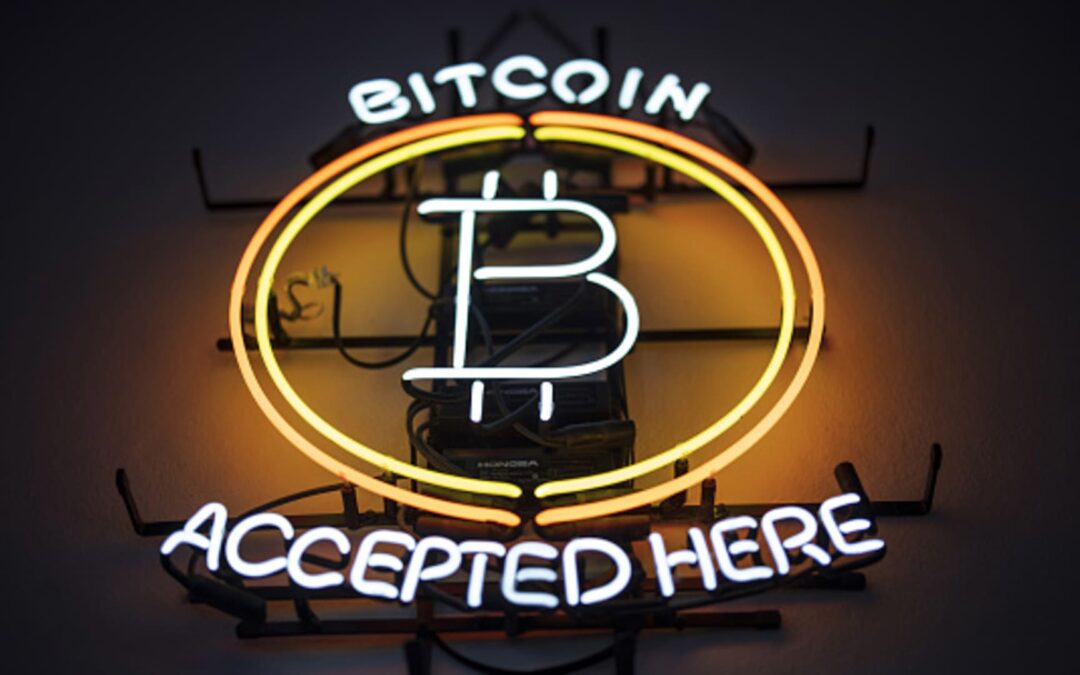A neon sign indicates that Bitcoin is accepted inside the venue of the Paralelni Polis project, an organization combining art, social sciences and modern technology, in Prague, Czech Republic, on Friday, Jan. 5, 2024.
Milan Jaros | Bloomberg | Getty Images
The price of bitcoin soared past the long-awaited $100,000 benchmark for the first time ever late Wednesday evening.
The flagship cryptocurrency was last higher by more than 4% at $103,544.00, according to Coin Metrics. Earlier, it rose as high as $103,844.05. Bitcoin is now up more than 140% in 2024 and 48% since the election.
The move came hours after President-elect Donald Trump announced plans to nominate Paul Atkins as chair of the Securities and Exchange Commission, fulfilling perhaps his most important campaign promise to the crypto industry: to replace Gary Gensler, who has become something of a villain in crypto for the agency’s regulation-by-enforcement approach to the industry under his leadership.
It’s a day of celebration for longtime bitcoin investors, who have held on for dear life, or “HODL’d” through several of the cryptocurrency’s boom and bust cycles, during which government and financial institutions remained dismissive — and even hostile — toward the asset class.
That’s largely because of the cryptocurrency’s anti-establishment roots. The original idea for Bitcoin was proposed at the height of the 2008 financial crisis: a “peer-to-peer version of electronic cash would allow online payments to be sent directly from one party to another without going through a financial institution,” its founder, Satoshi Nakamoto, wrote in the Bitcoin Whitepaper.
In recent years, however, the industry has demonstrated the value of bitcoin to much of the institutional investing world. BlackRock, Fidelity, Invesco and others launched the first spot bitcoin ETFs at the beginning of this year — bitcoin’s “IPO” moment — and the growing demand for them by institutions has helped drive the price higher. In November, Rick Wurster, the incoming CEO of Charles Schwab, said the firm is preparing to enter spot crypto trading, pending regulatory changes expected in the next Trump administration.
On Wednesday, Federal Reserve chair Jerome Powell said bitcoin is “just like gold only it’s virtual, it’s digital,” speaking at the DealBook conference. He further clarified that “people are not using it as a form of payment, or as a store of value” and that “it’s not a competitor for the dollar, it’s really a competitor for gold.”
“We’re witnessing a paradigm shift. After four years of political purgatory, bitcoin and the entire digital asset ecosystem are on the brink of entering the financial mainstream,” Mike Novogratz, CEO of Galaxy Digital, told CNBC.
Bitcoin had been widely expected to reach the landmark $100,000 level since the U.S. presidential election. However, excited investors sent bitcoin closer to this mark much sooner than initially anticipated; it rose as high as $99,849.99 on Nov. 22. There is much hope that President-elect Trump will deliver on several pro-crypto initiatives in the year ahead – including the establishment of a national strategic bitcoin reserve or stockpile, no taxes on crypto transactions and opening up the crypto public equity markets with more IPOs.
“Over the long term, I’m bullish,” Novogratz added. “It won’t be a straight line up, and investors should always consider taking gains off the table. But, with a pro-crypto administration about to take charge in the U.S., it’ll be hard for the rest of the world not to take notice.”









